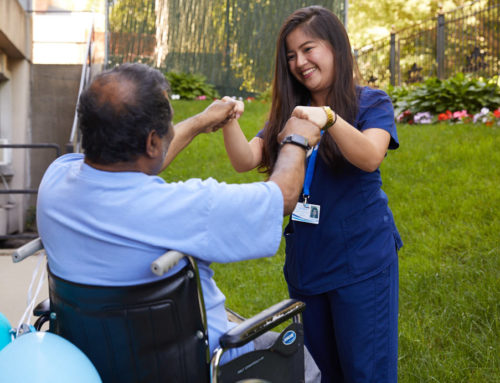Living with a Low Heart Rate: 4 Helpful Daily Habits
A low heart rate, called bradycardia, is normal when fast asleep. However, when it drops below 60 beats per minute while awake, it may cause concern. When it drops too low, dizziness, confusion, shortness of breath, chest pain, or fainting occur, often requiring medical attention. Some people experience light-headedness and fatigue due to a weak heart. If you lead a sedentary lifestyle or are under constant stress, it’s important to consider making lifestyle changes.
When dealing with heart issues, several treatment options are recommended, including medication or surgery. You may also require exercise programs and physical therapy to strengthen your heart. Health education and lifestyle changes and counseling to manage stress are also included in the program.
Please note that you should always discuss any new heart-related wellness routine with a healthcare professional before you begin.

Low Heart Rate – Habits That Can Help
Several factors may contribute to bradycardia, including age, mineral imbalances, medications, or chronic illness. However, some lifestyle choices worsen the condition, including smoking and alcohol use. Even high blood pressure and stress could contribute to a low heart rate. To strengthen your heart and prevent worsening bradycardia, the following may help.
1. Stay Active
Your heart pumps blood throughout the body, sending oxygen and nutrients to the muscles, organs, and tissue. Circulation also removes toxins and waste products, keeping everything clean and healthy. When your heart rate is low, circulation suffers, preventing the beneficial additives in the blood from getting where they’re needed.
Luckily, staying active can improve your heart rate and circulation. As you exercise, the heart beats faster, increasing blood flow. The more active you are, the stronger your heart becomes. You’ll also burn calories, reduce excess weight, and reduce high blood pressure for better circulation.
2. Stay hydrated
Hydration is another important aspect of heart health. Our bodies are approximately 60% water. This fluid helps with cell creation and function, removes waste, lubricates joints, and regulates temperature.
When we’re lacking fluids, every system suffers, including our hearts. According to experts, dehydration reduces blood volume, causing the heart to beat faster. Though this sounds beneficial to those with a low heart rate, the opposite is true. The blood retains more sodium, becoming thicker and preventing smooth circulation.
3. Manage stress
We all deal with stress throughout our lives. Though short instances are normal, chronic stress wreaks havoc on our hearts. Experts state constant stress raises cortisol levels, increasing cholesterol, blood sugar, triglycerides, and blood pressure. Plaque buildup in the arteries also reduces circulation, making it harder for your low heart rate to maintain circulation.
Reducing stress is the best way to improve your low heart rate. Exercise, meditation, yoga, and relaxing hobbies are beneficial. Treatment for anxiety, depression, or other medical issues also reduces stress.
4. Get electrolytes
Your body requires electrolytes to maintain healthy fluid levels for proper cell function and to regulate chemical reactions. Lacking electrolytes affects various functions, including your heart rate. For instance, reduced magnesium, chloride, or potassium levels results in heart arrhythmias. Calcium and phosphate are also associated with heart function, including heart rate.
If low electrolytes are altering your already slow heart rate, increasing the levels is vital. A healthy diet featuring fruits, veggies, lean meats, and dairy will raise electrolytes in the body. Sports drinks many be another option, though many of them are mostly sugar, sodium, and potassium, which are dangerous in high levels 7.
Resources:
- Mayo Clinic, Bradycardia
https://www.mayoclinic.org/diseases-conditions/bradycardia/symptoms-causes/syc-20355474 - British Heart Foundation, How your heart works
https://www.bhf.org.uk/informationsupport/how-a-healthy-heart-works - New England Baptist Hospital, Feb. 17, 2016, How Does Exercise Affect Your Heart, and What are the Benefits?
- The Heart Foundation, March 8, 2019, The Importance of Water
https://theheartfoundation.org/2019/03/08/the-importance-of-water/ - URMC, Stress Can Increase Your Risk for Heart Disease
https://www.urmc.rochester.edu/encyclopedia/content?ContentTypeID=1&ContentID=2171 - Cleveland Clinic, Electrolytes
https://my.clevelandclinic.org/health/diagnostics/21790-electrolytes - American Heart Foundation, June 19, 2024, Electrolytes can give the body a charge, but try not to overdo it
https://www.heart.org/en/news/2024/06/19/electrolytes-can-give-the-body-a-charge-but-try-not-to-overdo-it
This article is for educational and informational purpose only and does not substitute for professional medical advice. For any questions about your own health condition, speak to a qualified physician or healthcare provider.







Leave A Comment